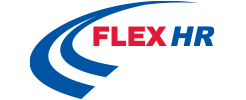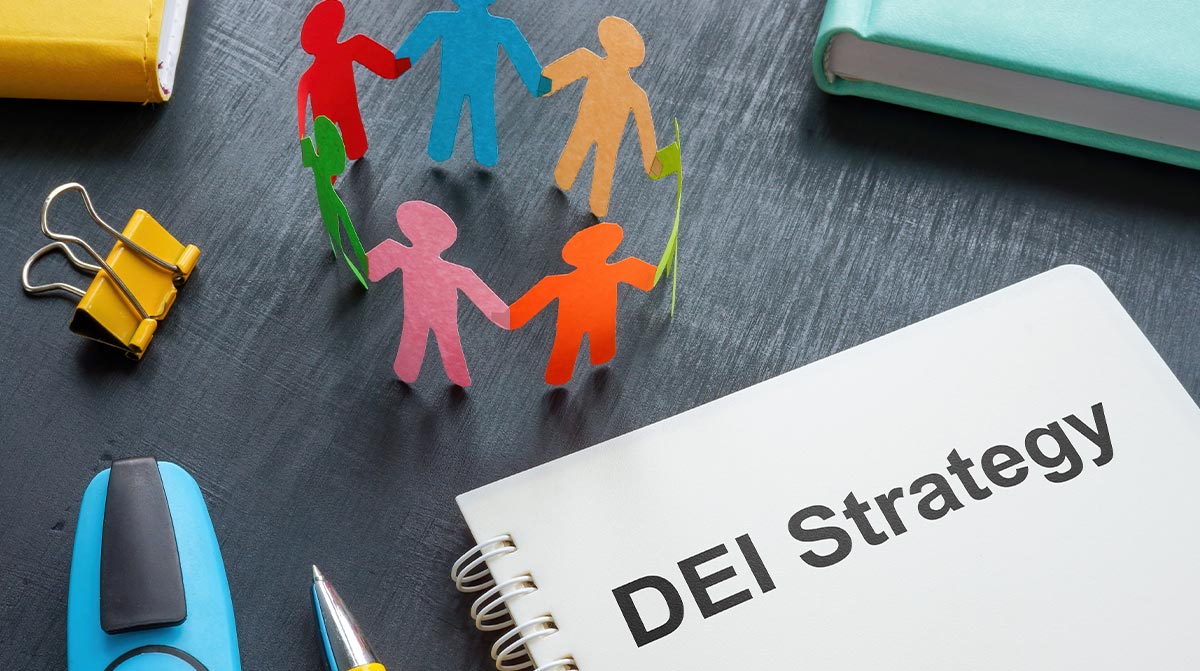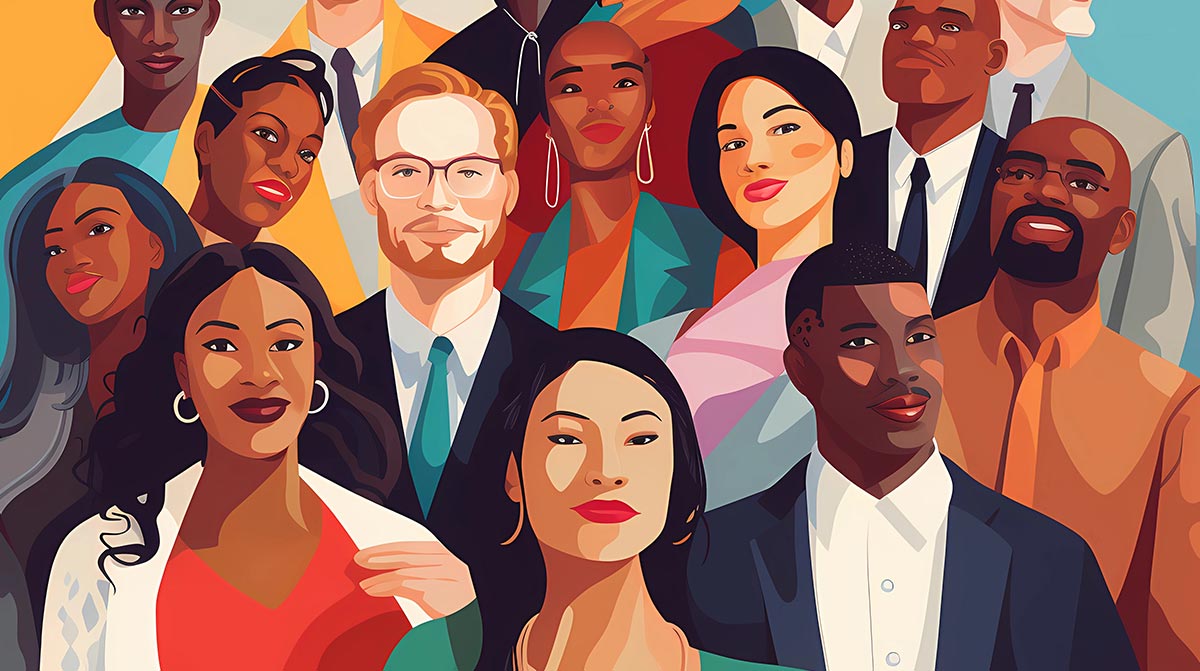Why Organizations Cannot Ignore the DEI Shift in the Workplace
An organizational shift to include Diversity, Equity, and Inclusion (DEI) initiatives at the workplace has existed, making an impact, yet rarely was it prominent enough to warrant the attention it deserved. However, this shift has been more prominent than ever before in recent years. Furthermore, it is no longer playing out in the background. DEI ingenuities have taken the spotlight, settling into workplaces where these concepts are making an impact and being written into company policies and procedures.
DEI initiatives are one of the most sought-after attributes of an organization. It is essential that employers and their HR departments ensure these DEI efforts are integrated into the goals of the company. Leaders need to assess the diversity in their ranks when looking at their management team and their employees.
Research shows that in companies with more diversity among their leadership and managerial roles, that employee ranks are more innovative, there is better employee engagement, employee retention, productivity, and are more profitable than their less diverse competitors. Therefore, the evolution of the global workforce may be a strong reason behind the increased adoption of DEI programs and the overall need of the organization too.
DEI Shifts in the Workplace
Organizations can no longer afford to ignore the DEI shift. HR Spotlight spoke to leaders who rationalize the DEI movement. Flex HR’s CEO, Jennifer Morehead, and HR Consultant & DEI Expert, Zarena Marcus explain why supporting the DEI shift is crucial to a company’s culture and overall growth potential.
HR professionals have been at the forefront of leading DEI plans in their workplaces to create a more equal playing field for all people. As part of the mission, creating an inclusive culture and enabling alternative accessibility methods is becoming increasingly important. For this reason, HR teams have begun to emphasize DEIA (Diversity, Equity, Inclusion, and Accessibility) to truly embrace diversity in all its forms and address any challenges concerning accessibility considerations.
Jennifer Morehead justifies that this broader focus allows comprehensive solutions to be created and encourages everyone in the organization to be conscious of not only cultural differences, but also physical limitations that could diminish someone’s ability to contribute effectively on the job.
Zarena C. Marcus, encourages companies to take a deeper look into the ways they have been operating their businesses in the past, prompting organizations to consider how they can implement DEI strategies effectively in order to facilitate the necessary changes. “As HR professionals, it is our responsibility to ensure that organizations are actively striving to develop cultures and environments that are inclusive, equitable, and diverse.”
One of the most important components of this process is including sensitivity training that has been tailored to the organization’s needs. A crucial part of making sure DEI efforts are successful is getting to know your employees on a more personal level, which allows you to understand their backgrounds and ensure that any environment you cultivate is one where every employee feels accepted, included, and heard.
Organizations Need to Prioritize DEI Commitments
Now that businesses are understanding the DEI shift, it is time to fully commit to it. Managers and employees want that empowerment. They want to be in control of more authority to feel safer and in charge of their life. They want to feel welcome and included. Those not typically seen as diverse are longing to be a part of a system that includes them where they can acquire more empowered resources.
The impact of embracing diversity, equality, and inclusivity leaves a significant impression on the employee and their social circles. When an organization prioritizes DEI efforts in the long term, the list of advantages extends far beyond the elements mentioned here.
Workforce Demands: Customer demands, along with other external factors, have caused businesses to operationalize DE&I to drive tangible outcomes. Inclusion is a solid predictor of employee engagement. As a result, employees are demanding companies take meaningful actions around DE&I and are using their voices to request change, making it impossible to not take this shift seriously.
Diverse Work Environment: Diversifying the hiring process is a vital piece of modern work culture. A diversified team shows progressively greater positive results than their homogenous counterparts. Improved hiring practices need to include underrepresented groups in candidate pools and interview panels.
Employee Trust: Employees are demanding their employers take a public stand against racism, and all forms of discrimination, and initiate change. Entrusting leadership and committing to engineer and sustain a more equitable workplace is crucial to ensure inclusivity remains a priority and foster employee trust.
Positive Branding: Employees are the loudest voice of brand and company sediment. Keeping staff members happy with a company’s commitments to DEI improves employee retention, acquisition efforts, and warrants strong brand loyalty.
Cost of Ignorance: Despite attempts for organizations to improve their support of diversity and LGBTQ employees and clients by being less discriminated against, there is still a long way to go to foster a truly inclusive workplace, especially for trans folks. The cost for overlooking this are decreased productivity, increased workplace dissatisfaction, higher turnover, and potential litigation. Business cannot ignore the importance of DEI training.
Competitive Talent Pool: The war for highly qualified and talented applicants has been running strong the past couple of years. Candidates are seeking companies with strong published DEI commitments to drive diversity and inclusion. Right now, the organizations that invest in building a more intentional and inclusive hiring process are will have a huge competitive advantage as we emerge from the current market disruption.
Flex HR provides an expert HR consultant to help with the strategy of a diversity training program for managers, employees and recruiters.



